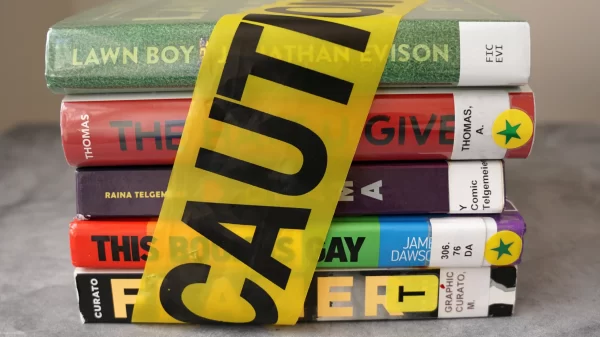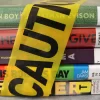By Bill Britt
Alabama Political Reporter
Racial tension is a continual theme in the news, in the long history of our country, and especially in the South, where grappling with race and ethnicity is an ever-present challenge. The realities of race, ethnicity, and social standing always color politics. From the pol-tax and George Wallace’s schoolhouse door, to Richard Nixon’s Southern strategy, including the current redistricting; race is always a factor.
While most of us have a sense of who our people were, where they came from, and what that makes us, we don’t know everything. The stories we were told as children, the expansive arch of our family history can define us. But what happens when family lore bucks up against the hard science of DNA?
About an hour and a half west of the “City of Brotherly Love,” Philadelphia, PA., that question is being asked. The results are nothing short of amazing.
In the tiny hamlet of West Chester, PA, the University of West Chester’s DNA Discussion Project is helping students discover who they are by tracing their ancestries through their DNA. The goal of the project, which began in 2006, is to “encourage greater understanding of the science of genetics, the construction of race, and the perception of ethnicity.”
Several companies supply DNA ancestry tests. One is AncestryDNA, provided by ancestry.com, which maps ethnicity going back multiple generations and provides insight into one’s ethnic heritage.
At WCU, students from a wide range of economic, racial, and social backgrounds are learning a broader sense of their ancestry and how an individual can relate to the collective student body through DNA testing.
A recent Washington Post report by Susan Svrluga illuminates the “awkwardness, defensiveness, [and] suspicion,” which surrounds the test results.
The DNA Discussion Project grew from Dr. Anita Foeman’s consulting work in race mediation at WCU. Svrluga points out that Foeman, “Instead of a confrontational approach, trying to provoke people into recognizing their own biases, wanted something that would pull people together, or at least give them a neutral place from which to start to talk. And with racial divides so stark, she wanted to add some nuance and depth.”
During a 2014 TED talk, Foeman explained that she became curious as to what would happen if the stories one was told about their family history would hold up against the empirical science of DNA.
“One of our theorists famously said that people are storytelling animals. We like a story with a nice, neat beginning, middle and end and heroes and villains,” said Foeman. “Another one of our theorists suggested that some of the family narratives that we have sounded more like fairy tales than they do like genealogy. Indeed, I think of them as like lullabies that lull us into a sense of security and predictability.”
The DNA Discussion Project studies show how these new revelations affect what a student believes about themselves and how it may change their interaction with others.
Student reactions vary widely, but being surprised is always part of the mix.
“The only thing that would kind of shift my self-perception at all would be if one of those races popped up that I was not expecting to see,” one female student said, who identified as Italian European. “That large chunk [more than 75 percent] there [on my results] is Hispanic. I had no idea. It was very surprising. I text my mom, and her first reaction was ‘No way, I want a redo. This is absolutely wrong.’ It’s very interesting to see that you’re something you didn’t know you were originally. But I’m always going to be Italian.”
One male student who identified as European came back 52 percent East Asian. “It was very surprising. That was a pretty shocking result.”
“Really no [Asian or African], really none, none, none,” one female student, who identified as European said. Later, after receiving her results, she said, “My genetic profile came back and 15 percent was African.” She looked shocked.
“If I have learned one thing from this research is that we are all relatives,” said Foeman. She also finds that genetic research is “telling us about the rhythm of the past and also the rhythm of the future.”
It is often said in the South: “We are never more divided than on Sunday morning,” as Church is a gathering place more often defined by race rather than religion. Politics and party affiliation is another area where race has become the defining line. Perhaps, in the near future, DNA will, as Foeman suggests, prove we are all relatives, and that our shared humanity outweighs our learned prejudices.
In closing her TED Talk, Foeman said, “In pulling all this together, the message is that each one of us is totally unique. There were not to people who had the exact same narrative. There weren’t two people who had the exact same profile. Now, we know that we have to put people into categories because we have to make life manageable. We have to make life pretty predictable, but when we start to believe that those categories are real and that we serve those categories rather than those categories serving us, we really need to step back and reconsider the vastness, complexity and sometimes discord of the rhythm of life.”
Chip Brownlee contributed to this report.


















































